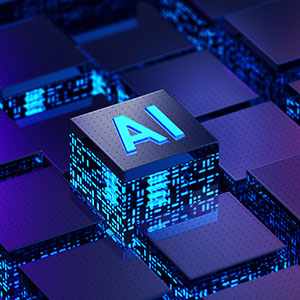
Artificial intelligence “thinks” differently than human beings do—and there are questions whether it even thinks at all, said Joe Mariani, research senior manager at the Deloitte Center for Government Insights, during a talk titled “Is Artificial Intelligence the Future?,” part of the June 23 State of the Art Jewelry Summit.
In the end, AI “only knows what you tell it,” Mariani said, which is why humans will always be needed to guide it.
“Humans are good at tasks that have high variability,” he explained. “AI can handle large amounts of data. But it has weaknesses: It isn’t good at persuasion, empathy, or emotional intelligence.
“The human element still has to be here,” he continued. “In the last seven years we’ve been studying AI, human-machine teaming has been the core theme. Humans have to design the prompts.”
In the future, business owners will have to decide how AI fits into their company—though Mariani cautioned that AI is best seen as an aid to creativity and decision-making, rather than a substitute.
At this point, “almost no organization has all the needed skills and talents for an at-scale adoption of AI,” he added.
He said society will face a lot of thorny questions as AI tools such as ChatGPT become more prevalent. “How do we handle our intellectual property?” he asked. “How do we handle privacy, or customer data?”
It’s also widely acknowledged that ChatGPT makes up facts that sound correct but are completely fictional. “All it cares about is being plausible,” he said. “It doesn’t care about being truthful. It doesn’t even know what truth is.”
The all-day jewelry summit, the first of its kind, was held at Harvard University’s Mineralogical & Geological Museum in Cambridge, Mass. It was presented by the Mineralogical & Geological Museum, the Responsible Jewellery Council, and GIA.
(Photo: Getty Images)
- Subscribe to the JCK News Daily
- Subscribe to the JCK Special Report
- Follow JCK on Instagram: @jckmagazine
- Follow JCK on X: @jckmagazine
- Follow JCK on Facebook: @jckmagazine






